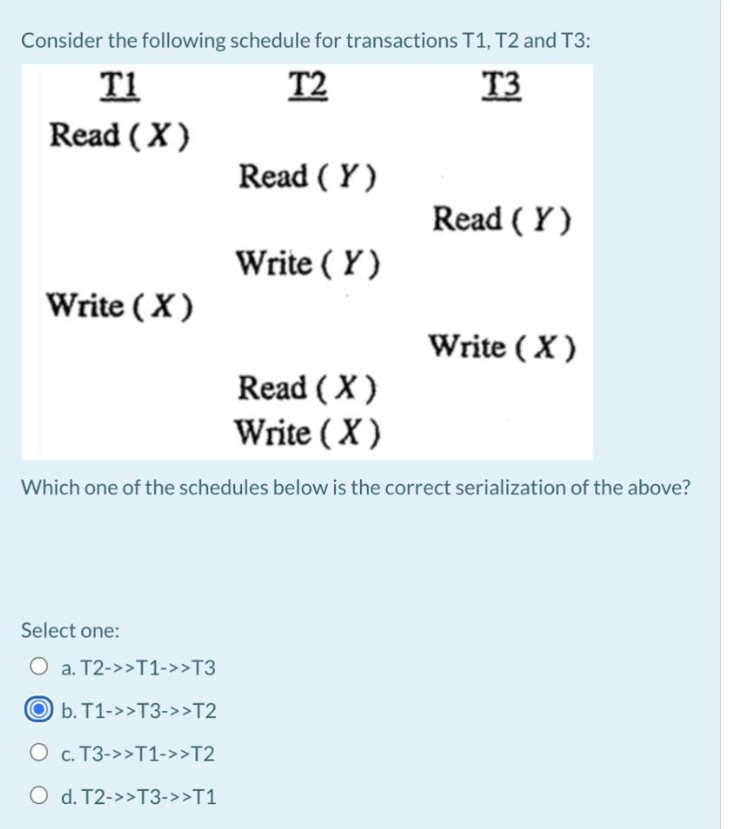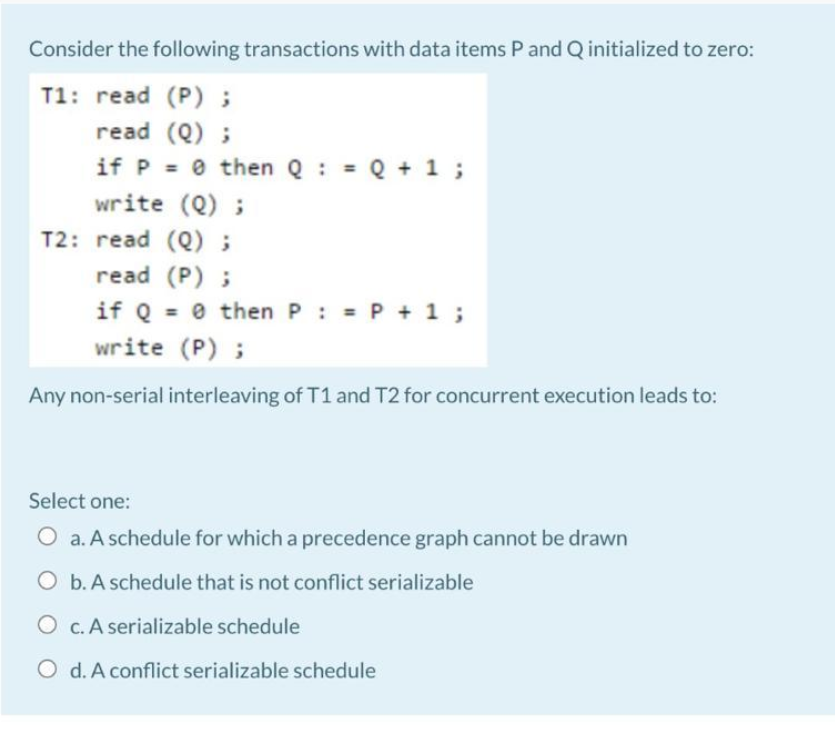Answered step by step
Verified Expert Solution
Question
1 Approved Answer
Consider the following schedule for transactions T1, T2 and T3: TI T2 T3 Read (X) Write (X) Read (Y) Select one: O a. T2->>T1->>T3



Consider the following schedule for transactions T1, T2 and T3: TI T2 T3 Read (X) Write (X) Read (Y) Select one: O a. T2->>T1->>T3 b. T1->>T3->>T2 OC. T3->>T1->>T2 O d. T2->>T3->>T1 Write (Y) Read (Y) Write (X) Read (X) Write (X) Which one of the schedules below is the correct serialization of the above? If indexes speed data retrieval, then why don't we index all fields in a database? Select one: O a. This is actually commonly done in industry. b. It would take a lot of disk space O c. The overhead of maintaining the index may outweigh the benefits derived. Od. Indexing some fields would violate data integrity constraints Clear my choice Consider the following transactions with data items P and Q initialized to zero: T1: read (P); read (Q) ; if P=0 then Q = Q + 1; : write (Q) ; T2: read (Q) ; read (P) ; if Q = 0 then P : = P + 1 ; write (P); Any non-serial interleaving of T1 and T2 for concurrent execution leads to: Select one: O a. A schedule for which a precedence graph cannot be drawn O b. A schedule that is not conflict serializable O c. A serializable schedule O d. A conflict serializable schedule
Step by Step Solution
★★★★★
3.42 Rating (142 Votes )
There are 3 Steps involved in it
Step: 1

Get Instant Access to Expert-Tailored Solutions
See step-by-step solutions with expert insights and AI powered tools for academic success
Step: 2

Step: 3

Ace Your Homework with AI
Get the answers you need in no time with our AI-driven, step-by-step assistance
Get Started


